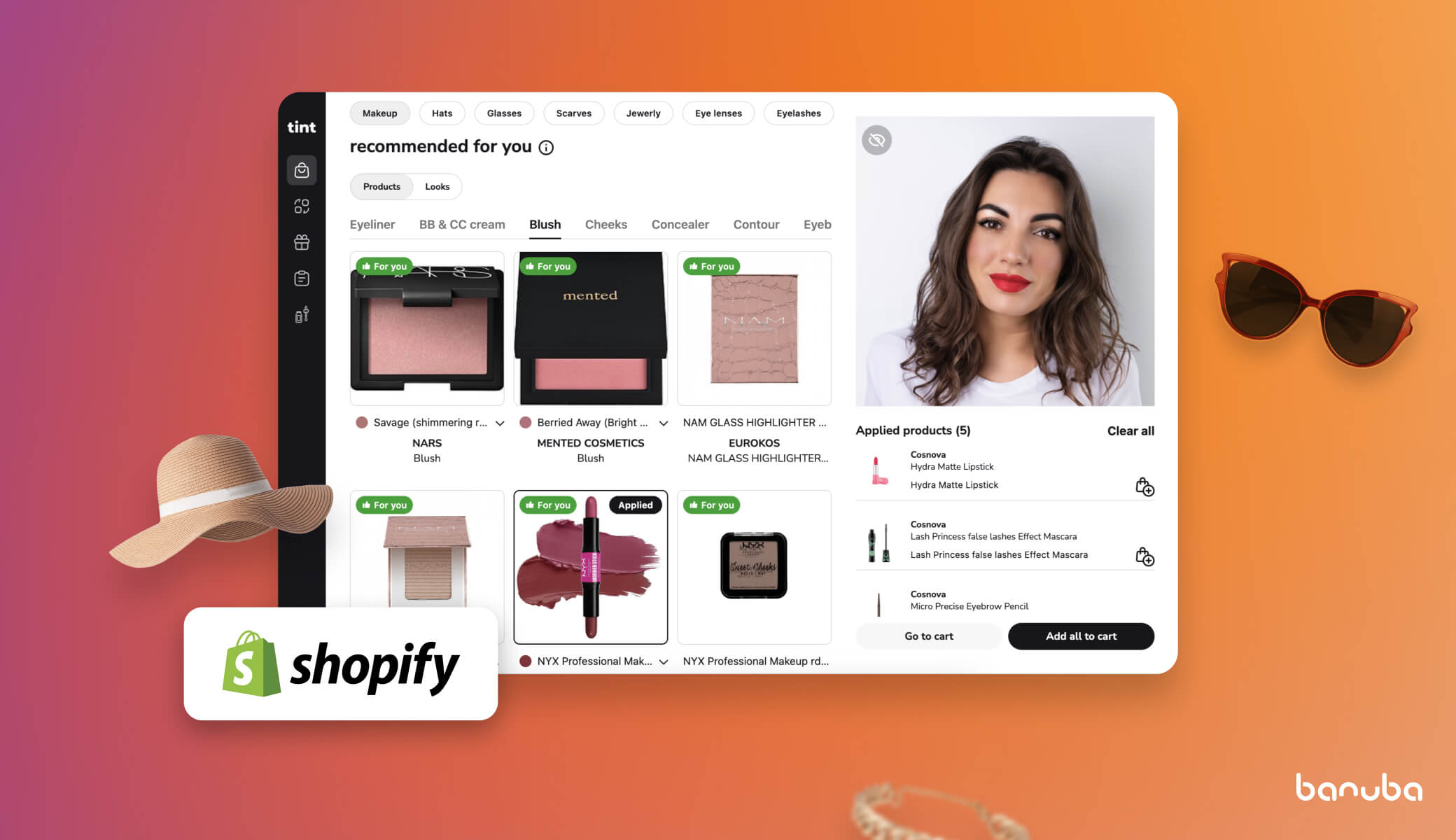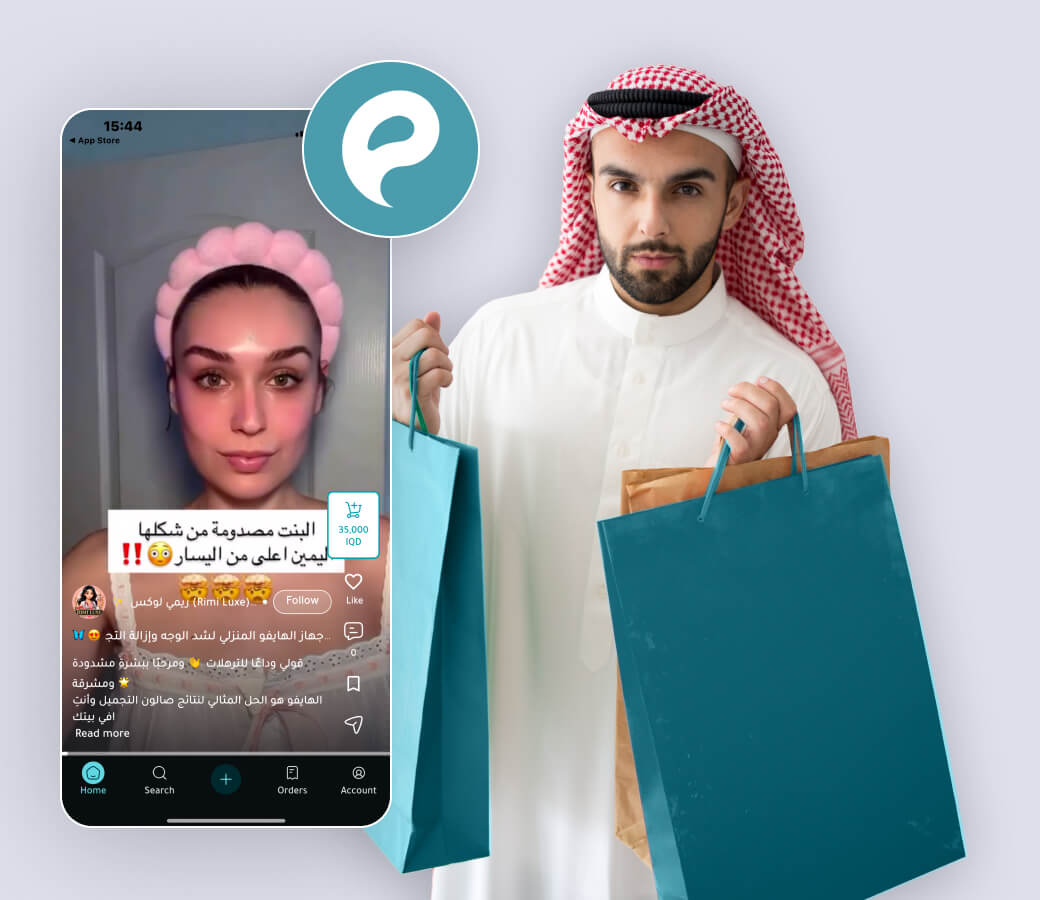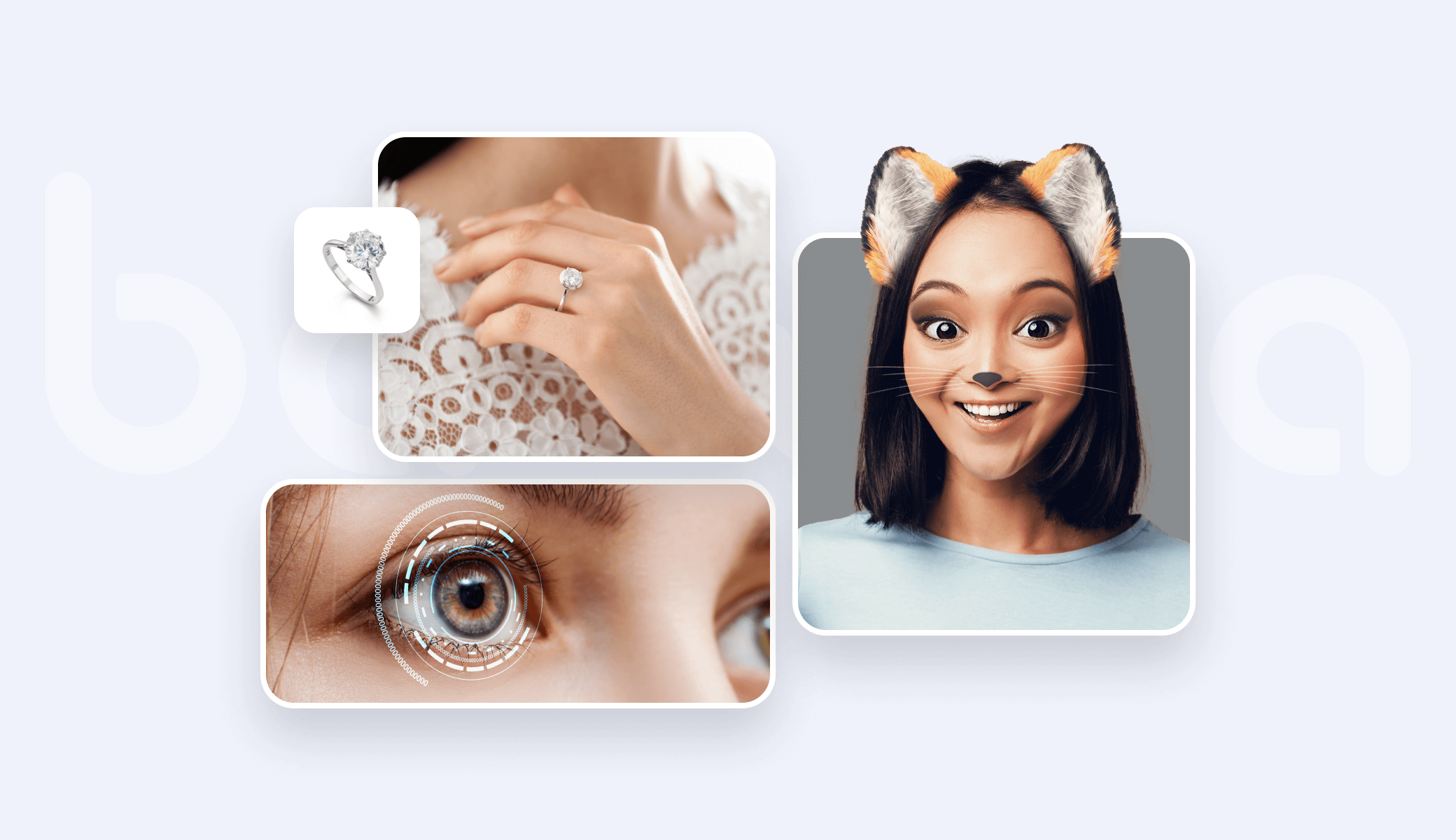[navigation]
TL;DR
-
Shopify AR triggered an augmented reality eCommerce boost back in 2018. Now, 71% of consumers prefer AR-based shopping to classical online browsing.
-
Virtual try-on plugin Shopify is the next-tier solution, offering more than 3D visualization. Merchants can find off-the-shelf applications to integrate digital fitting into their Shopify stores.
-
Brands incorporating virtual try-on plugins saw an extreme increase in conversions and sales: 75% for Warby Parker; 320% for Avon; 35% for Sephora.
-
For the beauty and fashion industries, merchants must focus on an AR Shopify plugin tailored to their niche, offering easy and seamless integration, producing high-quality imaging and rendering, complying with various platforms and devices, and offering customization.
Shopify AR Plugin: the What and How
Shopify AR is a tool that’s been transforming online shopping since its launch in 2018. With the Shopify AR plugin, merchants can now integrate augmented reality Shopify features right into their stores. Whether you’re selling makeup, glasses, nail polish, or hair dye, AR Shopify gives customers a “try-before-you-buy” experience from the comfort of their homes.
Here’s how it works: you, as a store owner, upload 3D models of your products to the Shopify platform (or get them from the platform’s 3D Warehouse), and Shopify AR Quick Look technology does the rest: no complicated apps, just simple magic through a smartphone’s camera.

How Shopify AR for eCommerce Alters the Rules
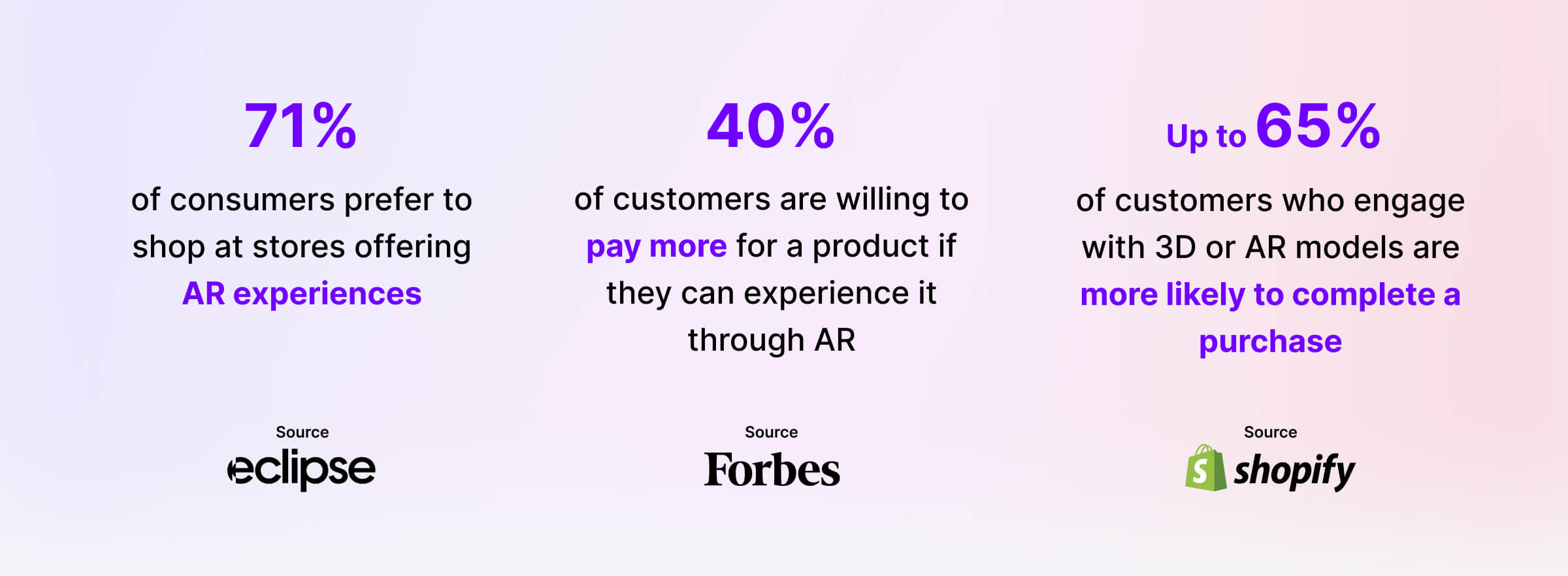
According to data, customers who engage with 3D or AR models are up to 65% more likely to complete a purchase. This is because AR bridges the gap between digital and physical shopping, providing a more immersive, interactive experience that helps customers feel more confident in their buying decisions.
Augmented reality didn’t just improve the customer experience — it changed the rules for the entire industry. Shopify’s AR plugin introduced augmented reality eCommerce as a mainstream tool, making it accessible to small and large businesses. As of 2024, over 71% of consumers say they prefer to shop at stores offering AR experiences, and 40% of customers are willing to pay more for a product if they can experience it through AR. This statistic highlights AR’s role in increasing both conversions and average order value. We’ve already covered this in our previous article on growing revenue on Shopify.
By giving merchants the tools to incorporate virtual try-ons, Shopify effectively democratized AR. What was once seen as cutting-edge technology for major retailers became a must-have feature for any eCommerce store looking to stand out. As a result, Shopify’s ecosystem grew to offer a variety of AR-based plugins through its marketplace, including specialized solutions for beauty (like makeup eCommerce Shopify tools), accessories, and even hair dye.
Pros of Shopify AR: Turning Browsers Into Buyers
Let's look at all the perks of implementing the Shopify augmented reality eCommerce strategy using the example of a customer journey. I love stories, so sit back and relax.
Let's imagine Alex, who saw an ad for a makeup store on Instagram that they've wanted to try for a long time. Luckily, XYZ beauty store uses the TINT AR plugin for Shopify. Alex tries on all products on sale while lying in a bubble bath (0% judgment, 100% understanding). They are curiously trying on new products, ignoring the time spent. TINT suggests new products to fit them better and increase their engagement rate.
Alex has already ordered makeup based on 3D models and swatches photographed in perfect studio lighting, and it ended with returns. With the help of this makeup virtual try-on plugin on Shopify, Alex realizes that the lipstick they wanted to order so badly doesn't match their skin tone. TINT analyzes their features and offers a perfect match - their teeth look whiter, their eyes are more expressive, and their skin is glowing. They add it to the cart and decide to try on the blush TINT offers them to compliment the look. Alex spends more than they planned, but anticipation takes over. They can always return the product, right?
Alex receives delivery and a 100% match in expectation-reality. Their loyalty to the brand grows, they leave positive reviews on the website, and share their success with the Shopify Makeup try-on experience on their social media.
The brand receives the UGC (user-generated content) and sends Alex virtual testers via email. Satisfied with the preview experience, Alex chooses new shades and adds them to their wishlist to buy next month.
And we are all a little bit like Alex. We want our expectations of online shopping to be met. But as business owners, we're also interested in metrics — to keep our ROI up and our business thriving.
AR for eCommerce: Use Cases and Success Stories to Inspire
I could tell you hundreds of customer journeys, including mine, but nothing inspires more than success stories backed up with analytics. Enjoy.
- Warby Parker introduced a virtual try-on feature to sell their eyewear. They reported that their conversion rates grew by 75% compared to customer experiences without AR.
- Forget everything you knew about Avon from the Edward Scissorhands movie. According to Kristof Neirynck, the company’s CEO, their conversion rates skyrocketed by 320%, and the average order value grew by 33% after integrating augmented reality eCommerce.
- Sephora’s virtual try-on feature led to a 35% increase in online makeup sales and resulted in a 25% boost in the add-to-basket rate.
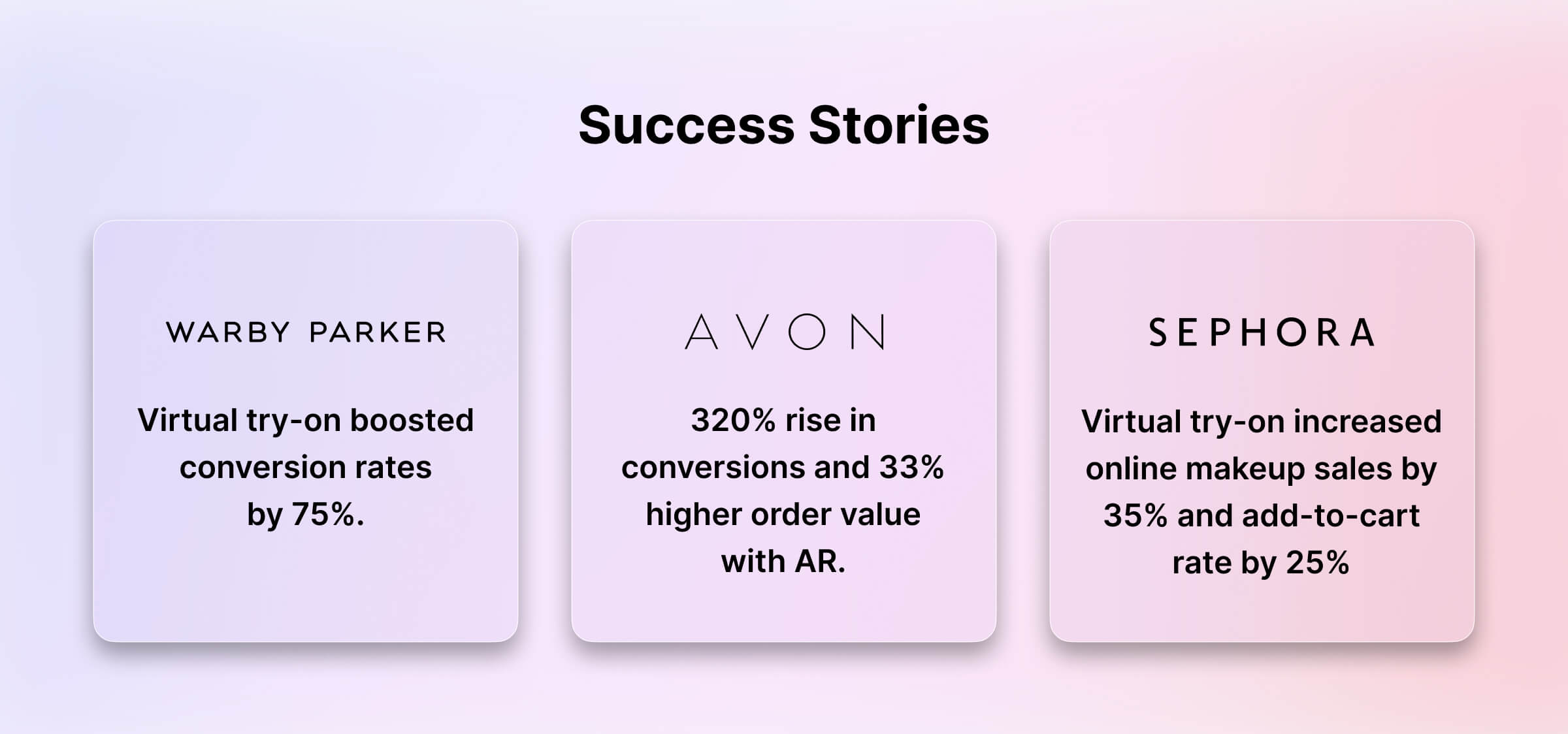
You may protest that these examples are giants with astonishing marketing budgets. I would have agreed with you back in 2018. Now, however, with a diversity of off-the-shelf virtual try-on Shopify plugins in its marketplace, not leveraging them is either caused by unawareness or deliberate choice.
If you want to know how else to increase your sales on this platform, read our previous article.
How to Find the Best Plugin for Shopify for the Beauty and Fashion Domains?
There’s no secret to finding your perfect Shopify augmented reality plugin. Here are things to consider:
Tailored for Your Domain
Not all plugins are created equal. When selecting AR Virtual Try-On (VTO) tools from the Shopify marketplace, it’s essential to choose one that aligns with your product category:
- For furniture and home décor, AR visualizes how items fit in a space and harmonize with existing furnishings. The tool should offer detailed placement options and precise color matching.
- For eyeglasses, both accurate object detail and the fit on the face matter. A top feature to look for is pupillary distance measurement, ensuring the glasses align perfectly with the user's face.
- For makeup, key aspects include realistic color representation, fast product digitization, personalized recommendations, co-selling, and up-selling. Banuba’s Virtual Try-on Solution offers its AI-powered seasonal color analysis, which helps provide accurate product recommendations.
- For hair dyeing, the tool should avoid unrealistic transformations, like turning dark brunette hair to platinum blonde, to manage customer expectations realistically and prevent disappointment.
Each product category demands a tailored AR solution, ensuring that the technology enhances customer confidence and increases conversions effectively.
Easy Integration
We all fancy seamless and quick integrations. TINT is super simple to set up, with no complicated tech or coding. It’s built for a smooth customer experience, so they can try on products virtually without a hitch.
Realistic Rendering
Customers want to know what they’re really getting, not to try on a trivial Instagram mask or filter. With TINT, the AR is sharp, with accurate color matching and lighting that adapts to different skin tones and environments.
Compatibility
Since most beauty shoppers are on mobile, it’s a must that your AR plugin performs perfectly on all platforms. Besides, what if you decide to migrate from Shopify to Wix?
Customer Support and Customization
The ability to customize your AR experience is important for maintaining your brand’s unique identity. TINT offers robust customization options, allowing you to adjust the appearance and functionality of the plugin to fit your brand’s style.
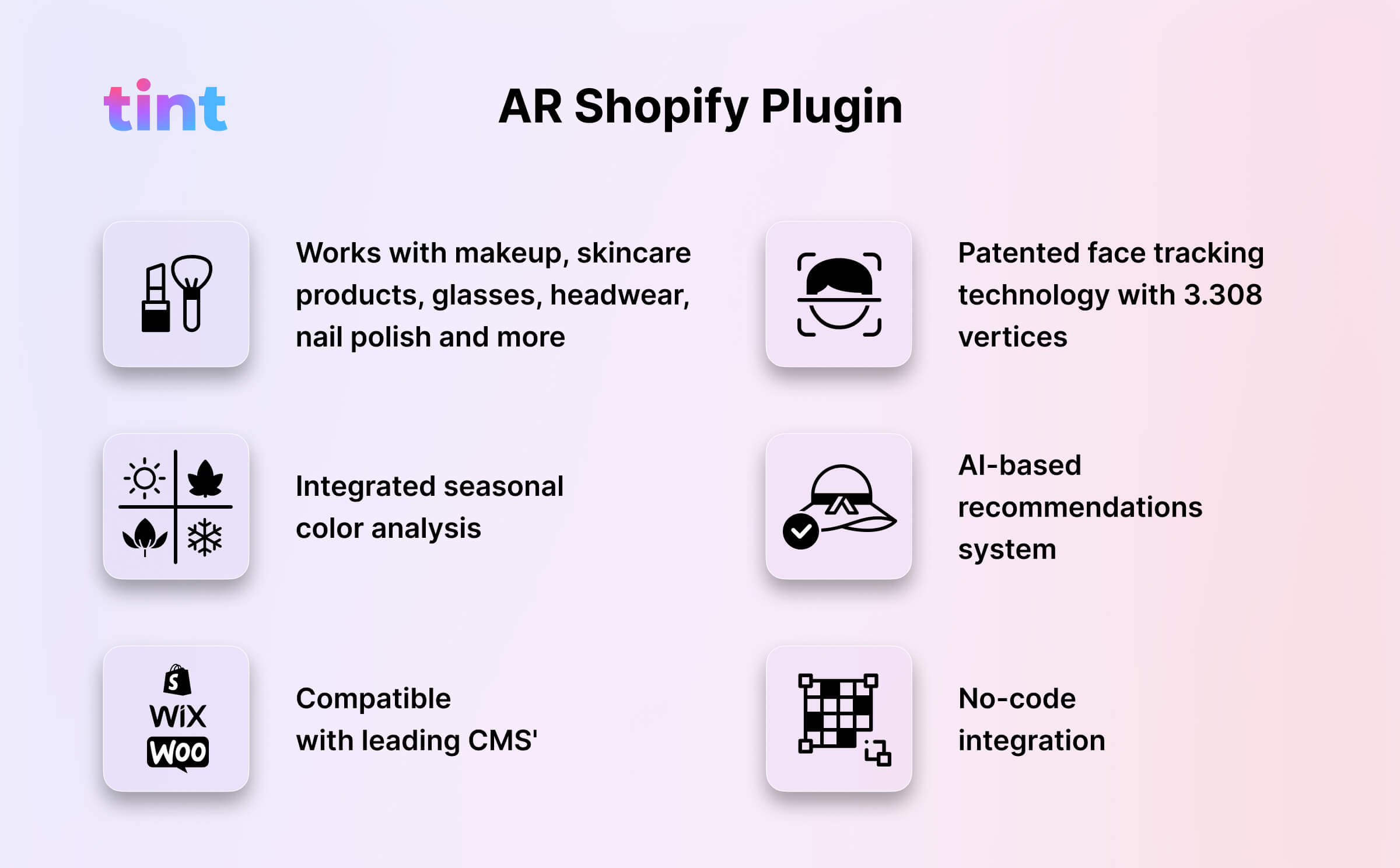
Conclusion
Integrating a virtual try-on Shopify AR plugin can become a life-changing experience for a beauty or fashion brand. Not everyone can cope smoothly with 300% conversions. Before committing to a specific Shopify plugin, give it a quick try — order a demo or ask for a free trial.

